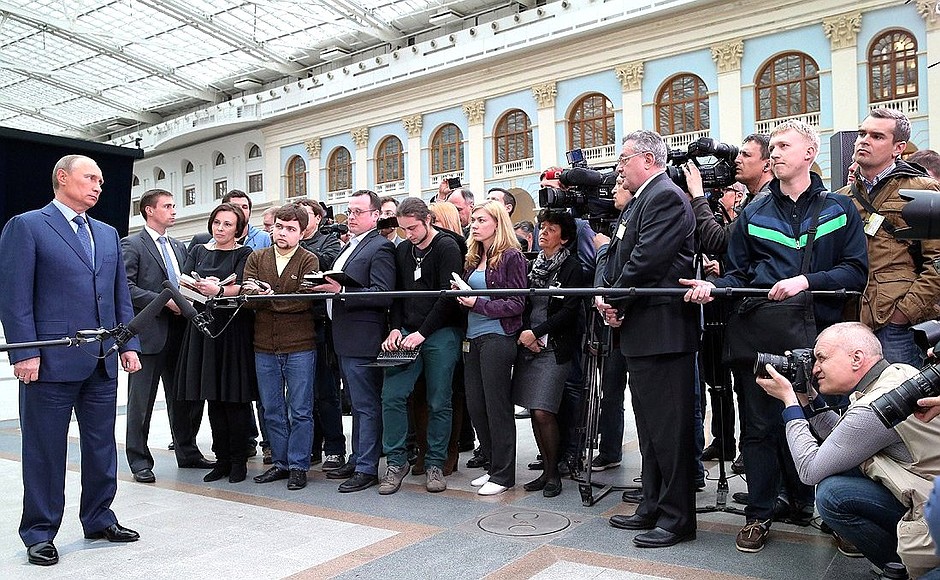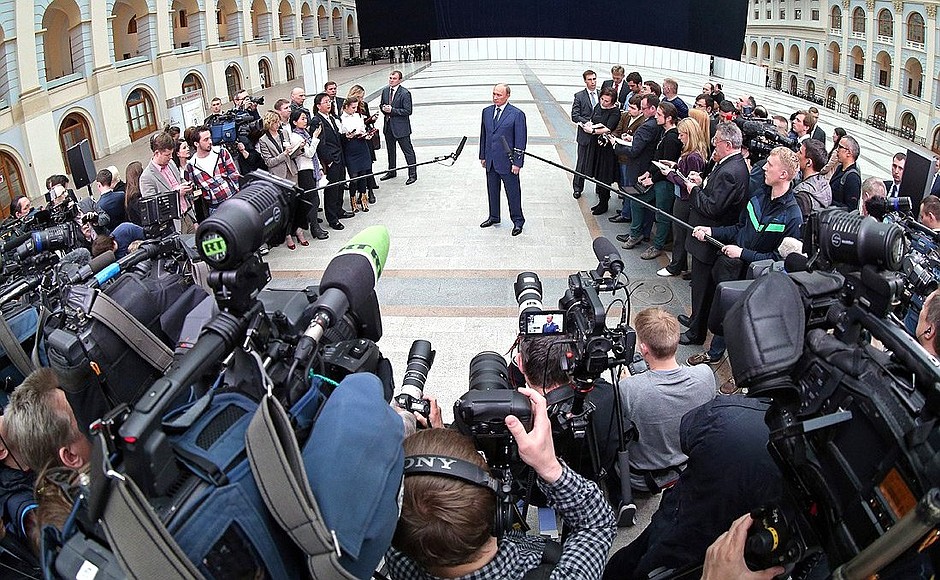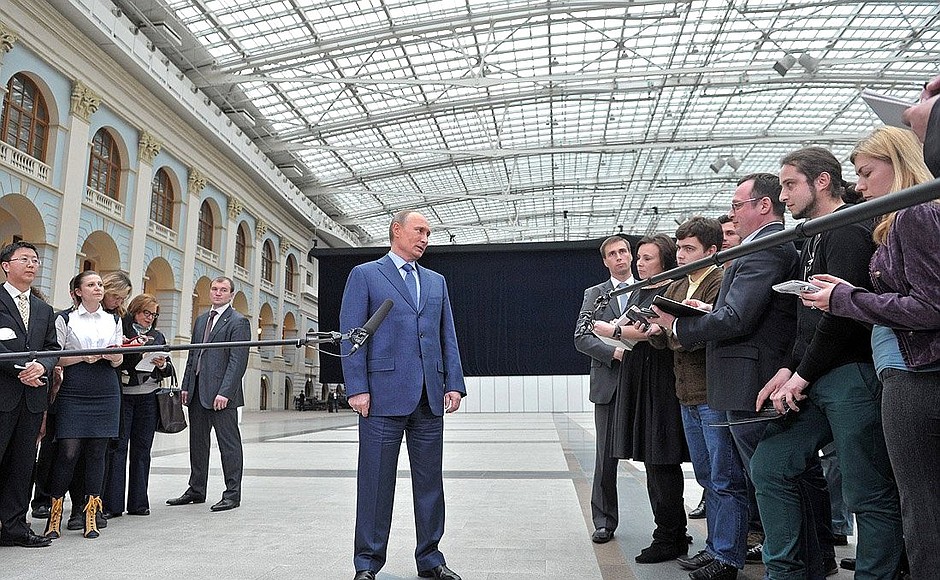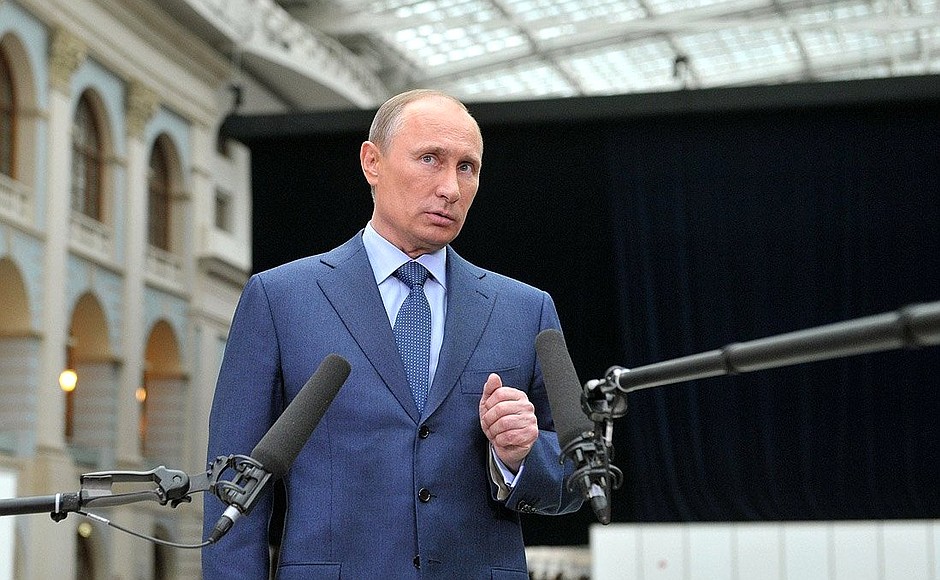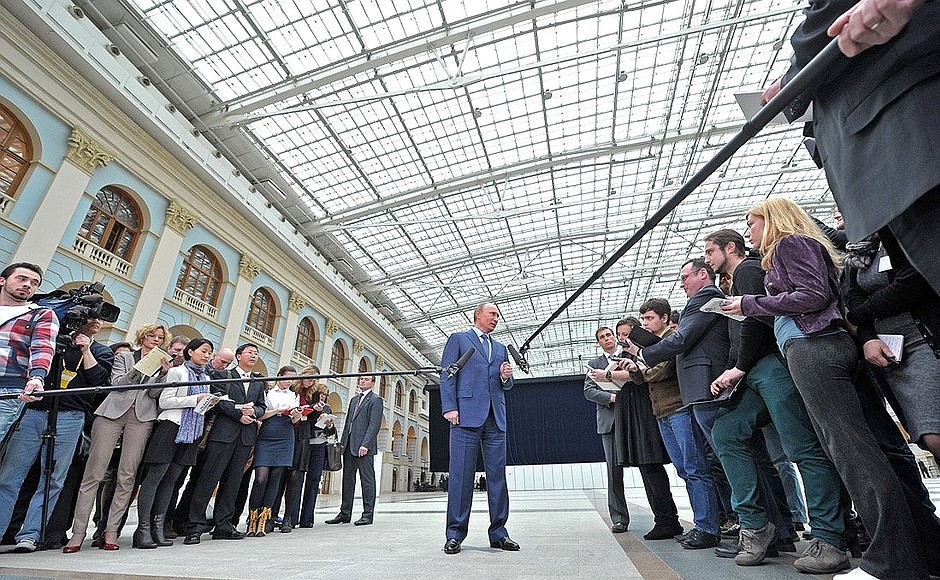* * *
Question: Mr President, 85 questions, 85 answers, 85 people – this is quite a lot. And all the questions were important. But there were nearly 2.5 million people who asked questions. Will all these questions be organised in some way? (It would be good if they were published.) And most importantly, will each of the people who asked a question receive a signal that their question was heard? Will there be some kind of answer?
President of Russia Vladimir Putin: This question is entirely fair. We did so in the past, and we will try to do the same this year: in certain cases where questions are particularly critical, sensitive, we will try to react to them. A whole group of people from the Presidential Executive Office and the Cabinet will be working on it.
But there are many questions that are systemic in nature, and they can and should be grouped together and answered systemically – perhaps, in some cases, not directly to the people who ask them, but in responding to the problems people identified, making the corresponding decisions. Work will be conducted, and it will be extensive and constructive. Still, I don’t know whether we will be able to respond to each person individually.
Reply: This shouldn’t be so difficult with modern technology.
Vladimir Putin: In any case, we will try to do this.
Question: As far as I understand, you agree with what Mr Kudrin and other economists said, that Russia needs investments, particularly Western investments…
Vladimir Putin: Russia needs private investments.
Question: Private investments. Do you agree that reducing hands-on control, significantly decreasing the extent of anti-Western rhetoric in state media, and ensuring that the majority of our society consider trials of opposition members fair, would be very beneficial in this case as the absence of all of these things impedes the influx of Western or private investments, regardless of what you say and what we write?
Vladimir Putin: And how do you think certain other leading global economies such as China, for example, attract potential investors, including private ones, despite the problems that exist in political systems of certain nations? The stability and reliability of the economic system, the stability of the political system – these are the main guarantees for attracting private investments, regardless of, as you put it, what you write. And you surely know this.
We will do the same in Russia. We will do everything to ensure that our citizens uphold the law: high-level and low-level officials, government representatives and members of the opposition. The main guarantee of success is when all our potential partners understand that the law comes first in Russia and people can trust it, people can trust the judicial system, which also requires improvements – improvements in the regulatory framework, in law enforcement activities and in the judicial system.
Moreover, we do not seek to worsen our relations with anyone; on the contrary, we seek to develop and deepen these relations. But we are against turning the other cheek. Russia’s society, our traditions, our culture and our laws should be respected.
Question: After the earthquake in the Sichuan province, you had a telephone conversation with President of China Xi Jinping, during which you stated Russia’s readiness to provide any necessary assistance to China in overcoming the effects of this natural disaster. During that conversation, Mr Xi reminded you of the old wisdom that you realise who your friends are in times of need. What measures is Russia planning to take in order to assist China in recovering from the earthquake?
And another question. In your view, what are the main objectives for developing Chinese-Russian relations this year?
Vladimir Putin: China is one of our leading trade and economic partners and developing relations with China is certainly among our greatest political priorities. Cooperation between China and Russia on the international arena is certainly a factor of stability.
As regards the economy, we are working on several major projects and creating conditions for broadening cooperation, including through the use of national currencies in trade and economic exchanges. Although it’s a difficult path, we will gradually broaden these opportunities.
As far as the tragedy is concerned, I want to once again express my condolences to all the families that lost their loved ones and to all those who were injured. I know that China is a mighty nation and is doing everything possible to help people, and that is precisely what the President of China told me. That is exactly what he said: the Chinese government is working on this practically every hour, every minute, thinking about the people and trying to do everything possible.
We agreed that if any additional assistance is needed, our rescue services are on a three-hour alert, ready to fly to China.
As for recovery help, we will do everything we can, everything within our power, if corresponding requests are made on the part of our Chinese friends. But at the very least – and I have already thought about this and will discuss it through the Foreign Ministry – we can invite children from the regions that were affected by the natural disaster to vacation here, as we did last time, and also think about what can be done for these families in order to provide them with support – first and foremost, moral support.
Question: It is no secret that in 2011, the Russian special services contacted the FBI with a request to investigate Mr Tsarnayev – the older brother, who was killed – based on the intelligence information that he was an Islamist. How seriously do you feel our American partners took this concern at the time, and is it possible that after this incident, anti-terrorism cooperation between our two nations will reach a new level?
Vladimir Putin: The exchange of information between special services, including between US and Russian special services, is an on-going thing. I hope that this tragedy will also serve as a push toward deepening this cooperation, in which both the American and Russian sides are interested.
Since the Tsarnayevs did not live in the Russian Federation, they came to Russia from Kyrgyzstan and only appeared here occasionally while residing in the United States, the Russian special services, to my great regret, were not able to provide our American colleagues with information that would have operative significance.
Thank you.
